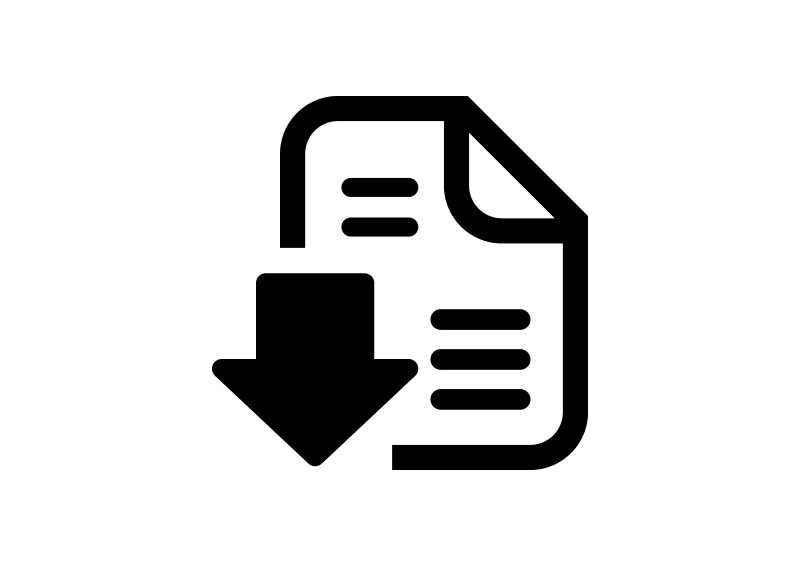INSIGHTFUL
Well Designed Reports and Fully Documented Test Cases
Well-prepared documentation goes a long way in ensuring the success and reliability of your software.

Have Confidence in Your Product with Up-to-Date Reports and Documentation.
Staying current with testing results and documentation is crucial for maintaining quality and transparency. Our platform ensures you have the latest insights to make informed decisions.
Receive Daily Reports.
Our system can provide daily updates on testing activities, giving you continuous insight into your software's performance and any issues that may arise.
View or Download Documentation Online.
Access comprehensive test cases anytime, anywhere. Our online portal allows you to view or download detailed test scenarios, ensuring you are always prepared.
Version controlled documentation.
Keep track of all changes and updates with our version-controlled documentation. This ensures you always have the most accurate and up-to-date information at your fingertips.
OUR MISSION
Our mission consists of 4 major steps.
Our mission is to make web testing easy, so you can focus on building your brand.
Design Quality
Maximize Efficiency, Minimize Risk:
At TestDuo, we prioritize the creation of high-quality testing solutions that maximize efficiency and minimize risk.
By leveraging state-of-the-art tools and methodologies, we ensure that our clients' software performs flawlessly under any conditions.
Documentation
Well-Designed Reports and Fully Documented Test Cases:
Our commitment to comprehensive documentation ensures the success and reliability of your software.
TestDuo provides well-prepared reports and test cases that offer detailed insights into every aspect of the testing process,
making it easier for you to maintain high standards.
Customization
Personalized Service and Innovative Methodologies:
We understand that every business has unique needs.
That's why TestDuo offers customized testing solutions tailored to meet your specific requirements.
Our innovative methodologies allow us to adapt to your unique software environment,
ensuring that we provide the most effective testing strategies.
Regular Updates
Have Confidence in Your Product with Up-to-Date Reports and Documentation:
Staying current with testing results and documentation is crucial for maintaining quality and transparency.
TestDuo provides daily reports and continuous updates on testing activities,
ensuring you always have the latest insights to make informed decisions.
Our version-controlled documentation system keeps track of all changes,
ensuring you always have the most accurate and up-to-date information at your fingertips.
Features
Wide Range of Technologies
We aim to keep up with ever changing technologies.

C#

Selenium

JMeter

Python

Jenkins
F.A.Q
Frequently asked questions ?
We have shared some of the most frequently asked questions to help you out.
Why Outsource Testing?
Testing Methods and Techniques
This approach is essential for identifying issues such as incorrect data formats, communication errors, and security vulnerabilities. API testing is highly beneficial for validating the logic of the build architecture and can significantly speed up the testing process, as it can be automated and performed earlier in the development cycle. By ensuring robust and reliable APIs, this testing method helps maintain seamless integration between different software components and services, leading to more efficient and high-quality software development.
Manual testing is particularly effective for exploratory, usability, and ad-hoc testing, where human intuition and creativity are essential. It allows testers to discover unexpected bugs and provides immediate feedback on the application's user interface, user experience, and overall functionality. By thoroughly evaluating the software's performance, reliability, and ease of use, manual testing ensures that the final product meets high-quality standards and delivers a satisfactory user experience. This hands-on approach is vital for detecting issues early in the development process, saving time and resources in the long run.
Through methods such as usability testing, A/B testing, and user interviews, UX testing gathers valuable insights into user behavior, preferences, and challenges. This feedback helps designers and developers make informed decisions to enhance the interface, streamline navigation, and improve overall user satisfaction. By prioritizing UX testing, companies can ensure that their software not only meets functional requirements but also provides a delightful and seamless experience, leading to higher user retention and engagement. This approach is essential for creating products that truly resonate with users and stand out in a competitive market.
This type of testing involves various sub-types including load testing, stress testing, and endurance testing, each aimed at evaluating different performance metrics. By simulating various environments and user scenarios, performance testing provides insights into how a system behaves under stress, how it recovers from failures, and how it handles large amounts of data.
Implementing regular performance testing allows developers to identify and address issues before they impact the user, ensuring that the application is robust, efficient, and capable of handling expected traffic volumes with ease. Ultimately, performance testing helps safeguard the application's reputation by ensuring high performance, which in turn, enhances user satisfaction and loyalty.
CONTACT US
Have any questions ? We would love to hear from you.
You can contact us regarding any queries, having the right information is key to solving your concerns efficiently. We're here to help!
